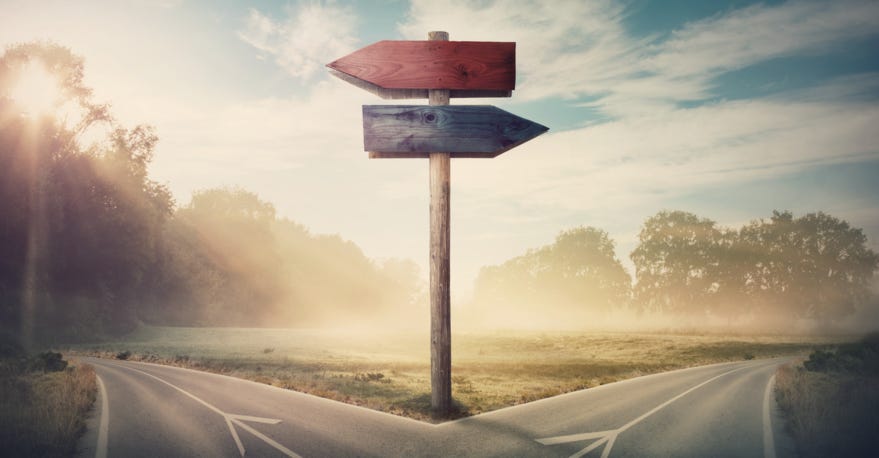The Council of Care
Hospice meetings, mindfulness and Buddhism, the afterlife, and pop’s greatest night
Welcome to STILL (especially first-timers)! I’m grateful you choose to spend time in this quiet(er) corner of the internet. As always, I’d love to hear what you’re resonating with! Please consider giving a gift to encourage my writing here—to support my WITHIN Project prison meditation work and to help make this space available to everyone.
QUOTE
"Consider what you are doing and
ponder whether it is worthy that you devote your life to it."—Rabbi Nachman, 18th century Jewish sage
STORY
I’m getting used to a new schedule now that I’m a part-time hospice chaplain. And it includes something that has not always been my favorite… meetings.
The main meeting happens every other week. The interdisciplinary team meeting, which consists of nurses, doctors, social workers, and chaplains is a standard meeting in the hospice world—a required one too.
But from my vantage point, as someone relatively new to hospice care, it strikes me as far from ordinary.
Yes, it takes place around an office conference table and/or via videoconference. Yes, it involves going over charts and reports. But to me it feels more like the reunion of a council. It’s as if we come together from far flung places and gather around a fire, delivering updates about our elders.
We talk about their pain, and easing it.
We discuss the degree of social support they have from family and friends.
We share about their psychological and spiritual state, and how we can best accompany them.
Indeed, we report on things like bowel movements and infections too.
As a newbie, I realize so many of my hospice colleagues have been attending these meetings forever. And so it makes sense that some fatigue might set in. But I can’t help but see this interdisciplinary group meeting thing as something extraordinary.
This team of people gathers on behalf of the dying…
To ensure they are providing whole person care—body, mind, soul, and spirit—as individuals approach death.
To remember those who are on the edge of our death-denying society, many of whom are forgotten and alone.
To say their names.
What a profound affirmation of human life.
So while I’ve historically been in the “too many meetings” camp, I’m glad to know this one exists. And I’m honored to be a part of it.
I also wonder where else in our world these kinds of meetings are quietly taking place. I wonder who would we become if we organized ourselves into communities of care like this.
COLLECTION
Can Mindfulness Be Separated from Its Source?
Mindfulness must be untethered from its Buddhist origins for the sake of both, argues Mo Edjlali, founder of Mindful Leader, in the article, Mindfulness or Buddhist Spirituality for Sale? A Call for True Independence.
This isn't just about preserving the integrity of mindfulness – it's about maintaining the purity of Buddhism and resisting the creation of a deceptive commercial Buddhist marketplace that dilutes both. This separation between secular mindfulness and Buddhist traditions serves everyone:
Buddhist traditions retain their depth and richness, free from dilution or misappropriation.
Secular mindfulness gains the opportunity to develop its own intuitions, teachings, evidence-based practices, and ethical frameworks.
Practitioners benefit from increased clarity, empowering them to make informed choices about their practice.
On the Creative Process
The Greatest Night in Pop is a fun and fascinating window into the creative process of individuals and a collective, courtesy of Lionel Richie, Michael Jackson, Stevie Wonder, Tina Turner, Bruce Springsteen, Kenny Rogers, and so many more legends… all in the same room.
On a January night in 1985, music's biggest stars gathered to record "We Are the World." This documentary goes behind the scenes of the historic event.
Exploring Death and the Afterlife
In My Time of Dying: How I Came Face to Face with the Idea of an Afterlife was an enjoyable (and fitting!) audiobook listen while I was on the road between hospice patient visits. Sebastian Junger, author and confirmed atheist, offers a scientific, philosophical, and personal examination of mortality and the afterlife.
A near-fatal health emergency leads to this powerful reflection on death…
How do we begin to process the brutal fact that any of us might perish unexpectedly on what begins as an ordinary day? How do we grapple with phenomena that science may be unable to explain? And what happens to a person, emotionally and spiritually, when forced to reckon with such existential questions?
END MATTERS
Sacred Changemakers
I enjoyed this soul-deep, emergent conversation with Jayne Warrilow of the inspiring Sacred Changemakers podcast.
“We dive deeply into many threads that are alive for us as sacred changemakers, from a quest for wholeness to discussing the importance of facing our own mortality, shedding life’s protective masks, and embracing midlife transitions not as a crisis but as an exciting call to adventure.” —Jayne
WITHIN Project
Learn about my prison meditation initiative and consider being a supporter!
Introducing the WITHIN Project, Substack post
The Way Home
A recent review of my new book The Way Home, available now:
“First of all, a little about me. I'm not a big reader. That being said - I couldn't put this down. I needed this. It was exactly what I needed to read. Ben understands the human condition and puts all the information down in a way that is applicable and enjoyable!”









